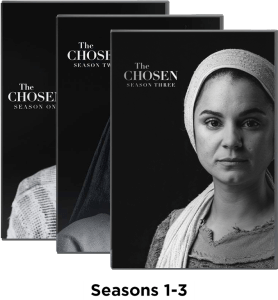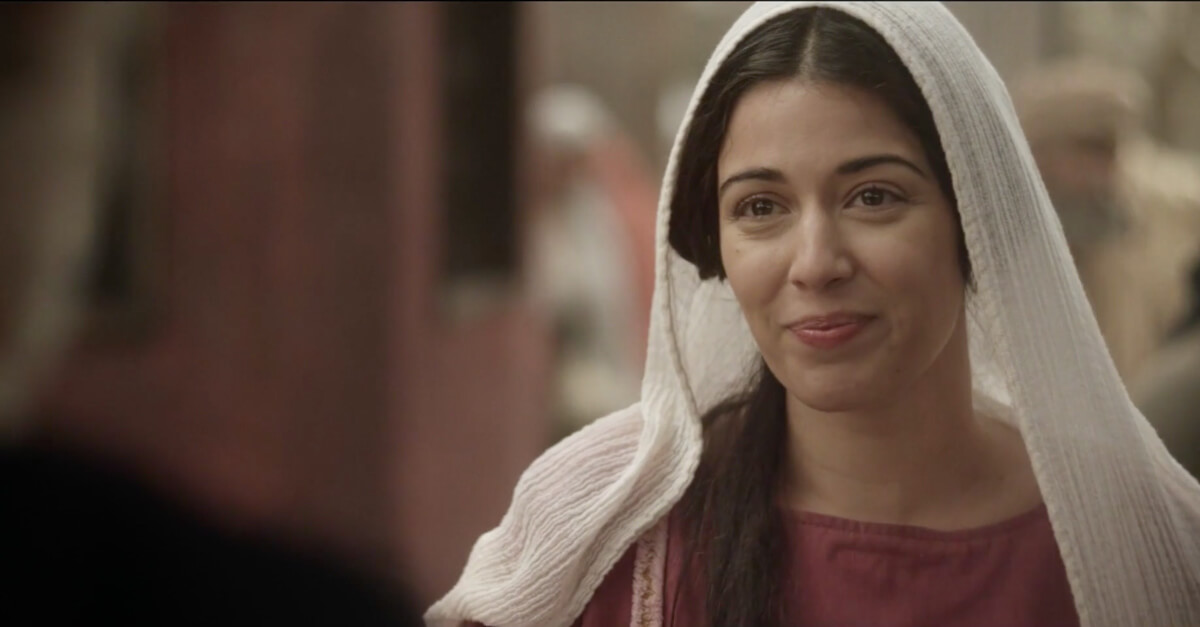In the gospel narrative we meet men and women who have encountered Jesus and find their lives changed forever. Some embrace him as Lord and Savior. Others curse him and nail him to a cross. And then there is the story of Mary Magdalene.
No character in the New Testament is sensationalized more than her. A few authors and screenwriters have fed into the theory that she had a romantic relationship with Jesus. Also, some theologians think she should be identified with the prostitute who poured perfume on Christ’s feet. Of course, nothing in Scripture points to romance, and it isn’t clear whether Mary is also the unnamed prostitute in Luke 7. What is clear is that she had a very troubled past.
Mary’s Demon Possession
The city of Magdala, just along the shore of the Sea of Galilee, is about 82 miles north of Jerusalem. It was a rich city, perhaps where elite Jewish leaders would spend their holidays or visit for conferences and meetings. If you’ve ever been there, you know how beautiful it is. This is where Mary was born.
Luke tells us that before she met Jesus she was possessed and tormented by seven demons. Though we don’t often think about demon possession in the western world, Jesus and others often used this terminology for ailments of the mind, schizophrenia being a common modern example.
This isn’t to say that all mental illness is demon related. I am simply saying that just because we can put a name to something doesn’t mean there isn’t a deeper spiritual reality at play. Psychological and neurological problems are a result of sin, the brokenness of our world, the corruption of our bodies.
How did this look for Mary? It could have been something like I just described, bodily or psychological torment inflicted on her by something evil. Or it could have been something she opened herself up to by courting the spiritual realm in the wrong way. It’s impossible to know the cause, but we can know what it looks like.
You might remember a more vivid picture of demon possession is presented in Luke 8 where a man named Legion was possessed by thousands of demons. Driven to the outskirts of the city, he would have episodes of rage and no one could stop him. They forced him to live in caves and chained him down, but nothing worked. Everyone had given up on him. Then he met Christ.
Jesus turned this demon-possessed man into a disciple. Nearby villagers saw this and were scared because it meant Jesus was more powerful than even the strongest demons.
This is the power of Christ; even the most powerful darkness cannot withstand him. Legion experienced it firsthand, and so did Mary Magdalene.
Mary’s Transformation
Luke says that Mary, along with other women like Joanna and Susanna, travelled with the twelve apostles. Mary was with him when he went from village to village preaching the gospel. Her life had been changed and she was a testimony to Christ’s power.
We also know that she was with the Lord when he was crucified for our sins, and she was one of the first to witness the empty tomb. When she told the disciples that the tomb was empty, she became one of the original evangelists, proclaiming that Jesus was alive.
Of course, Mary had lived a life of torment. Who knows what things she had to suffer while possessed by seven demons? But Christ turned her sorrow into joy. He turned her desperation into service. He turned her darkness into glory.
There’s a moment in The Chosen TV series that reflects this reality for Mary. In it she meets up with the pharisee, Nicodemus. This interaction isn’t something you’ll find in a biblical account, but it’s possible these individuals might have met at some point. In the TV series, Nicodemus asks how Mary had been set free from the demons that he had tried but failed to exercise out of her.
I don’t know about you, but Mary Magdalene’s story stirs my soul. What hope did she have? Tormented by demons, looked down upon by society, she was a true outcast.
But Jesus. Oh, if those aren’t two of the most powerful words when put together. But Jesus.
Jesus had pity on her. He called her by her name. He rescued her. And I hope you can see your story in her life. You may not have had seven demons, but you had besetting sin. You may have struggled and suffered, but the grace of our Lord finally broke in. He saved you, just as he is saving all those who follow him. Jesus delivered us from evil, protecting us from the evil one, and he is currently shaping us into servants like Mary.
When we come to Jesus, finally we see that life is not about us. We were all tormented by our sins, outcasts from God’s holiness, but Jesus came to us. Like Mary Magdalene and the rest of the disciples, our life and the life to come is now, and forever will be, all about Jesus.
ABOUT THE AUTHOR
As the leader of the 80-year-old Haven Ministries, Charles Morris is always thinking of ways to lead Christians and non-Christians to Christ—hence the familiar slogan, “Telling the great story … it’s all about Jesus.” Charles is a former secular journalist, who has worked for United Press International, and as a press secretary for two former U.S. senators. He began working in the Christian world after seminary, coming to Haven as the fourth speaker in 2000. He and his wife, Janet, have written several books, including Fleeing ISIS, Finding Jesus.
 THE CHOSEN (SEASON 1-3)
THE CHOSEN (SEASON 1-3)
AS THE BIGGEST CROWDFUNDED PROJECT IN TV HISTORY, THE CHOSEN IS THE FIRST-EVER MULTI-SEASON SHOW ABOUT THE LIFE OF JESUS.
This series allows viewers to see the life of Jesus through the eyes of those that knew Him. Follow the transformations of His followers through the ministry of Jesus as He journeys to change the world.
“Come and see” the global phenomenon that is changing tens of millions of people with each new episode. Click here if you already have the first two seasons and just want Season 3.



3 Comments
Psychological and neurological problems are a result of sin, the brokenness of our world, the corruption of our bodies.
As a nurse of almost 40 years and a Christian- i am appalled and sickened at this comment.
High Marie. I echo your concern that there is a significant history of mental illness and other ailments being viewed as the product of someone’s sin. That perspective is derelict and abusive. I don’t believe that’s what Charles is saying here. Rather, he’s making the case that psychological and neurological problems are no different than any other illness or tragedy or problem with our bodies or the world — that these collectively are a result of the Fall and the product of living in a broken world. Capital-S sin, not individual sin. I hope that helps communicate it more clearly.
My thoughts exactly. I work everyday with individuals tormented by mental illness. To me, this is like blaming the victim for being raped.
1 Trackback or Pingback